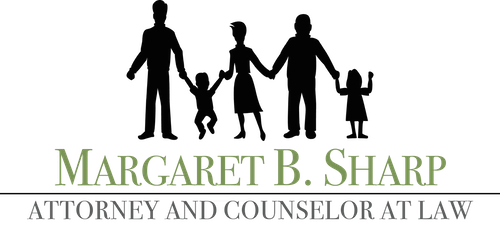LIMITED SCOPE REPRESENTATION
FULL SERVICE REPRESENTATION
NEWSLETTER SIGN UP
NEWSLETTER SIGN UP
Changes in Tax Law May Require Changes to Your Trust
As you may know, Congress recently made certain changes in the tax code. The $5 million exemption from estate tax (which was available for persons dying in 2011 and 2012) was made permanent, indexed for inflation. That means that individuals now can shelter $5,250,000 (2013) from any estate tax liability.
Also, Surviving Spouses have the ability to use the Deceased Spouse’s unused exemption amount to increase the available exemption of the Surviving Spouse. This is the portability provision which has been discussed in prior newsletters.
The law also continues the unification of the estate and gift taxes.
DO YOU NEED TO CHANGE YOUR TRUST?
One impact of these recent tax law changes is that married couples who established their living trust with an A-B arrangement (dividing the trust into a Survivor’s Trust and a Bypass Trust at the death of the first spouse) or an A-B-C arrangement (adding a QTIP Trust to the arrangement) and who have total estates which are under $10 million, may not need to have such complexity in their trusts in order to avoid an estate tax liability on the death of the Surviving Spouse. Now, under current law, the whole estate of the couple may be sheltered by the available exemption amount. If such complexity is not needed for estate tax reasons, couples may want to simplify their living trusts by eliminating the Bypass and QTIP Trusts. For ease of examples, I will refer only to the Bypass Trust in the remainder of this newsletter.
ADVANTAGES OF ELIMINATING THE BYPASS TRUST
Ease of Administration : Simplifying the living trust may make it easier for the Surviving Spouse to understand and administer it after the death of the Deceased Spouse in the following ways:
There would be no need to create a separate Bypass Trust. The living trust would continue on as the Survivor’s revocable living trust, with the Surviving Spouse as Trustee, minimizing the trust administration process.
There would be no Bypass Trust funding hassles such as opening up new accounts in the name of the irrevocable Bypass Trust or signing new deeds which transfer real property. Note, however, that Affidavits of Death would still need to be recorded.
The Surviving Spouse would not have to obtain a new taxpayer identification number for the Bypass Trust, nor would he or she have to file a separate income tax return for each irrevocable trust.
Real property appraisals, however, would still be necessary in order to establish the new step-up in basis for the Surviving Spouse.
Step-Up in Basis on Death of Surviving Spouse: Unlike assets held in the Survivor’s Trust, assets held in a Bypass Trust do not receive a step-up in basis when they pass to the children on the death of the Surviving Spouse. Eliminating the Bypass Trust results in all the assets being held in the Surviving Spouse’s revocable trust. Such assets do receive a step-up in basis at the Survivor’s death.
A step-up in basis reduces or eliminates the potential capital gains tax liability on subsequent sale of such property by the children.
REASONS NOT TO CHANGE YOUR TRUST
While there are advantages to eliminating the Bypass Trust provisions from your living trust, there are some advantages for keeping your trust in its current A-B or A-B-C arrangement.
Ensures Children Receive the Deceased Spouse’s Property : There are risks associated with keeping a trust fully revocable by the Surviving Spouse. One such risk is that the Survivor could remarry after the Deceased Spouse’s death. If the trust is revocable by the Surviving Spouse, it is possible that he or she could change the trust instrument to leave trust assets to the new spouse, requiring either that the children to wait until the new spouse’s death to receive their inheritance, or removing the children as beneficiaries from all or a part of the trust estate.
If it is important to you that the Deceased Spouse’s property passes to his or her children on the death of the Surviving Spouse, a Bypass Trust is necessary. Since the Bypass Trust is an irrevocable trust, the Surviving Spouse would not be able to change the terms of the Bypass Trust. The Surviving Spouse may, however, be given a limited power of appointment over the Bypass Trust if it believed to be necessary to give the Survivor an opportunity to change the terms under which a child or grandchild could inherit. It depends on the underlying factual circumstances of your situation.
Provides Creditor Protection for the Surviving Spouse : In certain circumstances, the Bypass Trust can be used by the Surviving Spouse as a shield against potential future creditor claims. If it is important to you that the Deceased Spouse’s property be protected from future potential claims against the Surviving Spouse, keeping the Bypass Trust as a provision of your living trust is a useful way to accomplish that objective.
Now is a great time to call your estate planning attorney and discuss the particulars of your situation to determine whether or not you need to change your living trust to reflect the changes in the estate tax law.
The post Changes in Tax Law May Require Changes to Your Trust appeared first on Sharp Estate Planning.

